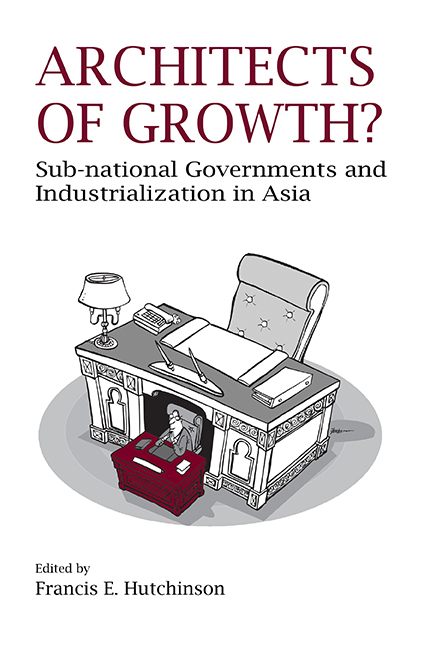Foreword
Published online by Cambridge University Press: 21 October 2015
Summary
The chapters in this book are based on papers presented at a remarkable conference organized by the Institute of Southeast Asian Studies on 7 October 2011. They are groundbreaking in several ways.
For one thing, they discuss territories instead of countries. This approach is highly significant, and promises to lead ISEAS research in new directions in our effort to understand Southeast Asian dynamics beyond national divides.
The chapters also study major actors in the political economy of many nations, who are often overlooked. The focus is tactically moved towards politics and key processes found at levels below the national conceptual umbrella.
Furthermore, the book as a whole examines the nexus between politics and economics and in the process not only gives a deeper meaning to regionalism, but also inspects the geography and geopolitics of developmental processes today.
These are important strands that when interwoven, amount to a unique innovation. The case studies do not come only from within Southeast Asia, but also cover industrial areas external to the region as well.
I congratulate Dr Francis Hutchinson for conceiving of and organizing this conference and bringing to bear, in the process, his wide range of international contacts, and his penchant for comparative studies in an area that is necessarily complex.
Heartfelt thanks to Konrad Adenauer Stiftung for helping to sponsor the conference.
- Type
- Chapter
- Information
- Architects of Growth?Sub-national Governments and Industrialization in Asia, pp. xiiiPublisher: ISEAS–Yusof Ishak InstitutePrint publication year: 2013



